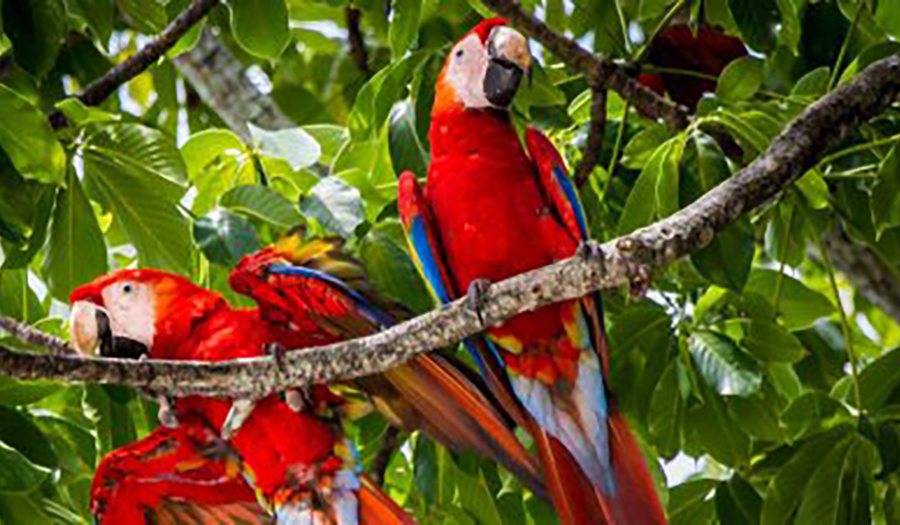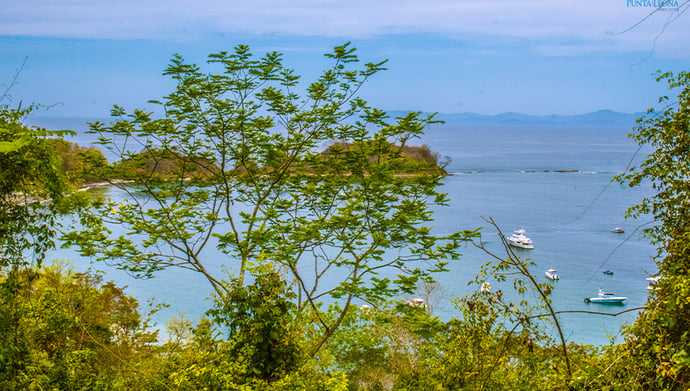We bet so far you haven’t got the chance to watch macaws being born on live streaming video, right? Seeing how those birds, with impressive colors, are born to fly and join the wonderful nature at Hotel and Club Punta Leona.
Certainly it is a very peculiar situation, but the opportunity comes to you now. Since August 2015, as part of our conservation program in Hotel and Club Punta Leona, we have placed cameras in three nests to monitor macaws in the privacy of their natural life. And now one of them is about to see her offspring being born, an event that you can witness in a live broadcast through this link: http://fotonaturaleza.net/camaras.php
They are three macaws and they might be born around February 6th. They will remain in the nest for 3 or 4 months until May, if they manage to survive the conditions of their environment, which are not always easy. They will have to face predators, such as monkeys and porcupines, as well as the possibility that the biggest chick will impose itself and let its siblings starve.
It is important to note that, during the period in which the chicks will remain in their nest, we will interact with them as little as possible, leaving nature to continue its course. That means that the broadcast will continue if the chicks live and leave their nest eventually, but will end if they die in circumstances that are completely the result of their environment. By scientific principle, it is only possible to observe and let Mother Nature be in charge of her own creation.
At Hotel and Club Punta Leona we have worked hard to support this wonderful species, with which we have the privilege of sharing the habitat in total harmony. Therefore, we have this protection program since the mid-90s, in which we place nesting habitats, both natural and artificial. As well, we cultivate almond trees and other species that are usually the favorite of this species for food.
We have also filmed the life of the macaws, covering their whole process of reproduction: courtship, competitors, mating, nesting, birth and growth of chicks, until they leave the nest. These videos, with great educational and scientific value, have been shared with the general public in order to serve as audiovisual material in environmental education programs.
This project, which allows us to witness the annual nesting cycle of red macaws through a video camera, is coordinated by Dr. Christopher Vaughan of ICOMVIS of the National University, with the support of the Hotel and Club Punta Leona, Fotonaturaleza (Mauricio Calderón), the Biology School of the University of Costa Rica (Mauricio Calderón) and Luis Sánchez, Enrique Iglesias and Wilbert Vargas.
Currently, it is estimated that there are about 35 pairs of macaws in Punta Leona. Throughout the Central Pacific, they have has grown from 300 to more than 400 individuals.
So stay in tune with the miracle of life: baby macaws that will soon break the shell, see the light of day and will marvel us like flying rainbows in the sky.



